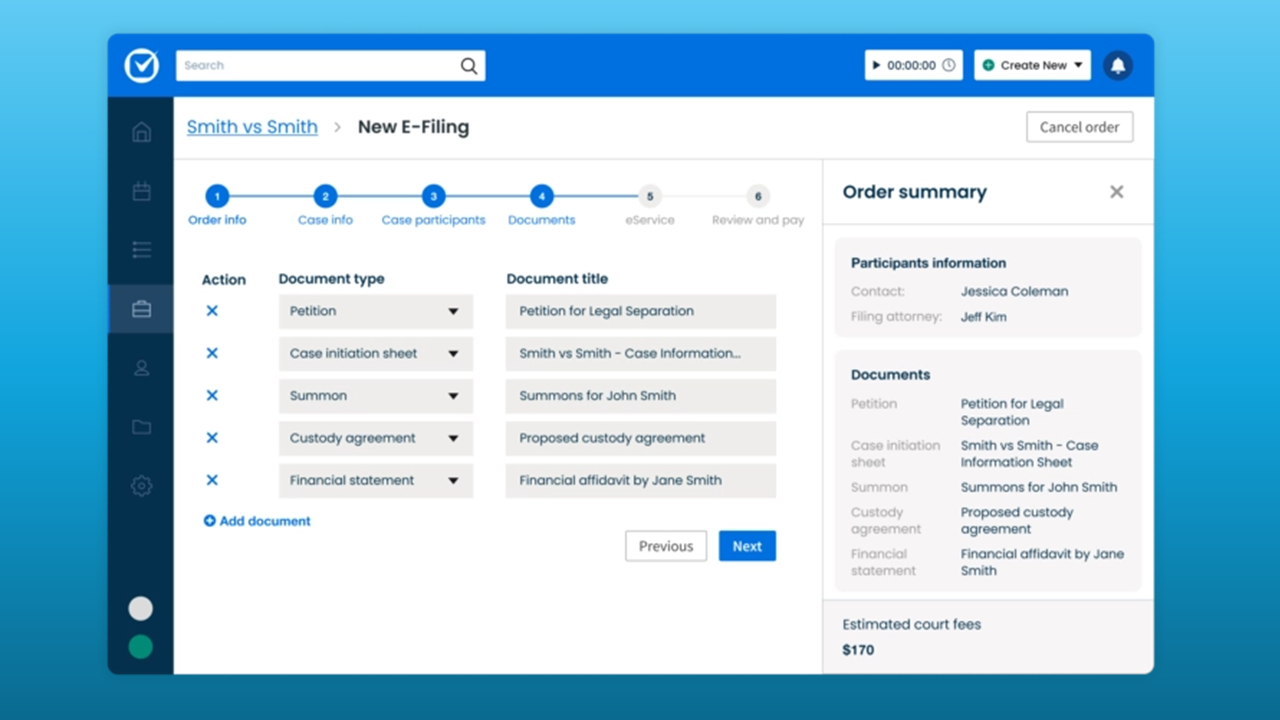Last October, during its annual Clio Cloud Conference, the law practice management company Clio announced its plan to roll out an e-filing service, called Clio File, during 2024, starting with Texas, which would make it the first law practice management platform with built-in e-filing. Today, it delivered on that promise, launching Clio File for e-filing in Texas courts.
“Lawyers can now seamlessly submit court documents directly from our flagship practice management product, Clio Manage, streamlining their workflows and simplifying the filing process,” said Chris Stock, vice president of legal content and migrations at Clio. “This is an exciting step in expanding the capabilities of our platform, providing a comprehensive solution for legal documents, from drafting to court filing.”
Clio File is included in all Clio Manage subscriptions for customers filing in Texas. Users pay a per-filing service fee.
Users of the service can file in all Texas state courts, but not federal courts.
I have not yet seen Clio File, but according to Clio, its features include:
- Court forms and document e-filing directly from within Clio Manage, eliminating the need to download and upload documents or switch between tools.
- Court e-service, ensuring all parties receive notice through built-in e-service as subsequent filings are made in the case.
- Automatic fee expensing to record filing fees in Clio Manage.
- A status dashboard to monitor and track all outgoing court filings in one place within Clio Manage, providing real-time updates on filings’ acceptance or rejection.
- Real-time email and in-app notifications when filings are submitted, accepted, or rejected.
- Court-returned documents sync, with stamped copies returning to the matter.
The e-filing feature words in tandem with two other features Clio already offered – its built-in rules-based calendaring that came after it acquired CalendarRules in 2021 and its automated preparation of court documents for all 50 states using its document automation product Clio Draft, which it developed after it acquired Lawyaw in 2021.
Clio has said that it plans to expand the feature into other states that accept e-filing.
 Robert Ambrogi Blog
Robert Ambrogi Blog